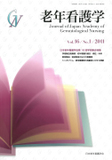Japanese
English
- 販売していません
- Abstract 文献概要
- 参考文献 Reference
抄録
生活上の困難を抱えている認知症の患者本人が,家族介護者との相互作用のなかで,なにを思い,介護の必要な自分をどのようにとらえ,家族介護者との関係をどのように構築しているのかを明らかにするために,軽度〜中度の認知症の患者9人に対し半構成的面接を行い,修正版グラウンデッド・セオリー・アプローチを使用し分析した.【崩れていく自己像】を自覚している認知症の患者本人は,【自分を生かす】と【譲歩を引き受ける】という対照的な行為のバランスを保ちながら新たな関係性を育もうとしていた.このバランスを保つうえで,認知症の専門家や家族介護者の支えにより【生かされている】と実感することが重要であった.譲歩には不満感や不本意な心情などを残存させているため,譲歩が度重なると,【譲歩への抵抗】が強まる不安定さがみられた.【譲歩への抵抗】【病に操られている】≪できること探しの断念≫が絡み合うと,心の孤立化へと陥る危険とともに関係性構築を困難にさせていた.
To examine what dementia people who have difficulty doing things on their own in their daily life think in interaction with their family caregivers, how they view themselves as patients in constant need of nursing care, and in what way they develop relationships with their family caregivers, we held semi-structured interviews with nine patients with mild to moderate dementia, and analyzed the interviews on the basis of the modified grounded theory approach. Demented patients with an awareness of their “collapsing self-conception” were trying to nurture a new relationship with their caregivers, while maintaining a good balance between two conflicting feelings of “making the best of themselves” and “making concessions”. To strike the balance, they needed to keenly feel that they “were allowed to stay alive by the support of medical professionals and family caregivers”. Making concessions often left the patients with frustration or complaints, and repeated concessions started to cause them to enhance their “resistance to concessions,” which was thought to result from emotional disturbance. When “resistance to concessions,” “feeling a sense of helplessness at the mercy of their disease,” and “giving up finding what they can do” came together in the patients, it isolated them mentally and made it difficult for them to establish relationships with people around them.
Copyright © 2011, Japan Academy of Gerontological Nursing All rights reserved.


